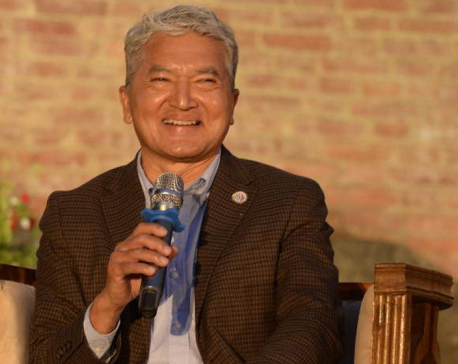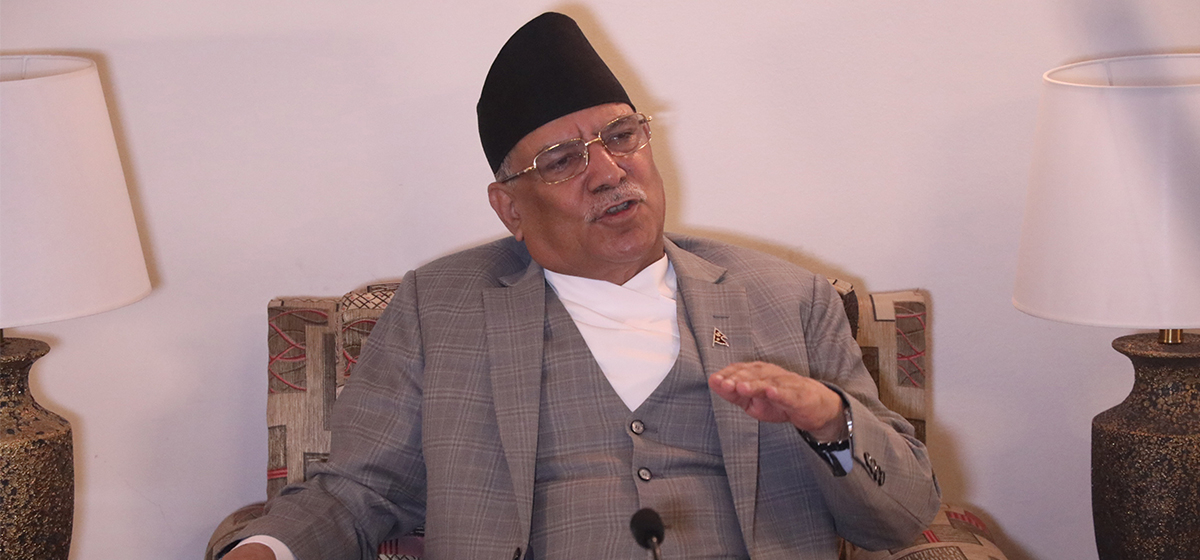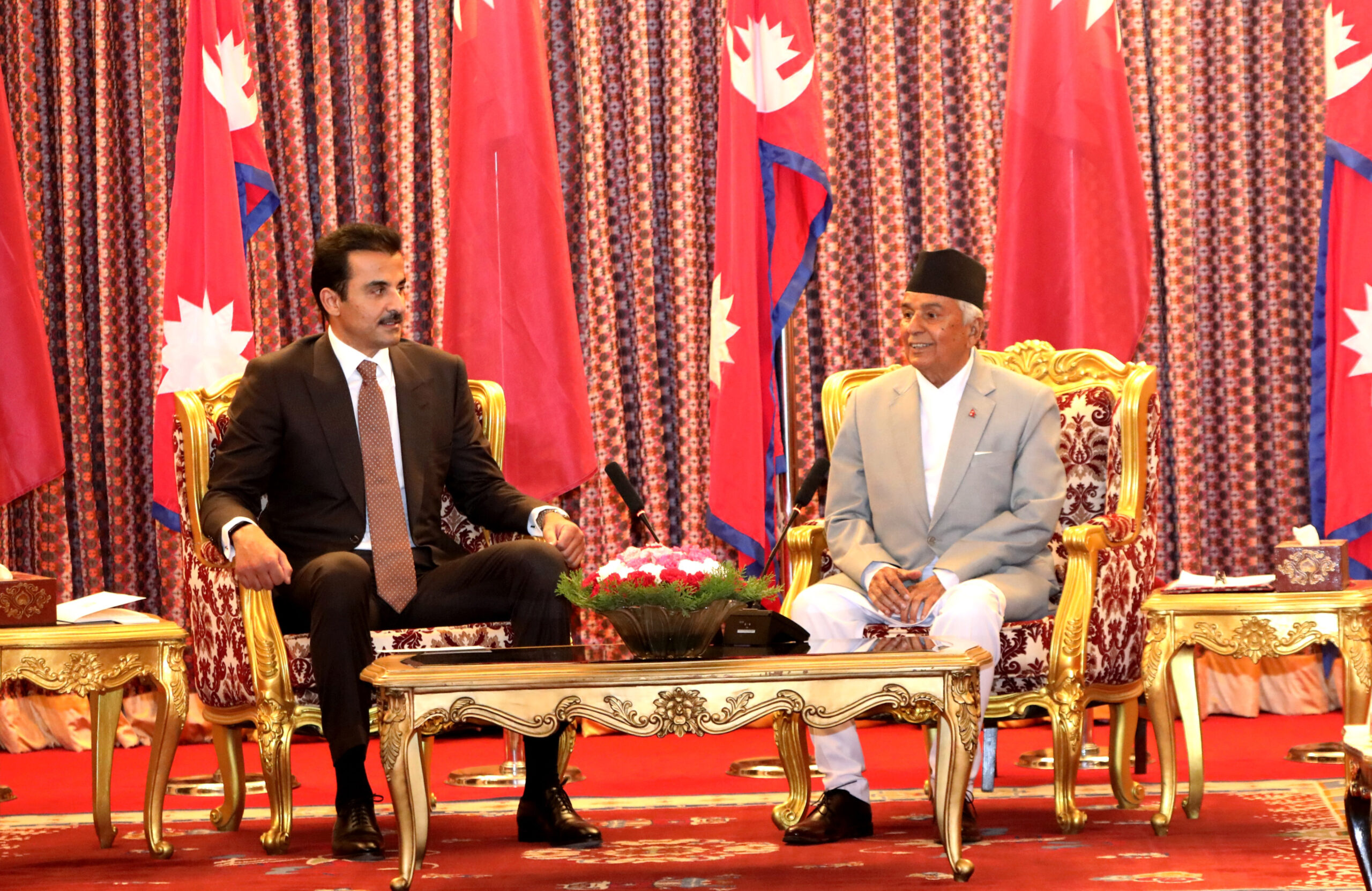
OR
Khalistan activist Singh suspected to have entered Nepal
Published On: March 27, 2023 06:20 PM NPT By: Tapendra Karki

KATHMANDU, March 27: The Ministry of Home Affairs has instructed all security agencies to be on high alert in the Nepal-India border area.
According to Ministry sources, the directive was given at the request of Indian security officials and the Nepal-India border area has been kept on 'high alert' for two days. Such instructions have been given because there is a possibility that Amritpal Singh, who is campaigning to create a separate country called Khalistan in India, has come or may come to Nepal. According to the Ministry's top sources, limited police officers working in the Special Bureau of Nepal Police and the Intelligence Bureau of the Armed Police have reached the Nepal-India border area. The Special Bureau has already reported to the Inspector General of Police (IGP) Basant Kunwar, who took charge of the police organization only on Monday.
Indian security sources informed the Special Bureau of the Nepal Police and the Intelligence Bureau of the Armed Police that Singh, the head of an organization called Waris Punjab De, had reached Uttarakhand.
In recent days, after demonstrations of Khalistan supporters started in London and San Francisco, Indian media reported that a security alert has been issued at the border due to the suspicion that Amritpal Singh, who is wanted by the Indian police, may enter Nepal. Two days ago, the Armed Police Force IGP Raju Aryal also took a report on this matter. "Both police organizations have mobilized their mechanisms," said a high source at the Ministry of Home Affairs.
According to the sources, police in plain clothes have increased vigilance in the border area as they can come to Nepal from West Nepal from Kapilvastu.
Indian security sources informed the Special Bureau of the Nepal Police and the Intelligence Bureau of the Armed Police that Singh, the head of an organization called Waris Punjab De, had reached Uttarakhand, saying that he could enter Nepal from there. Since then, police detectives have been deployed. Nepal's National Investigation Department is unaware of this matter. "Indian security officials have reported that they can enter Nepal from the border area of western Nepal. A senior official of the ministry said. Citing Indian security sources, the Indian media has also mentioned that an alert has been issued at the Nepal-India border on the suspicion that they might enter Nepal from Uttarakhand. In recent days, the Indian police has also increased the interrogation of people who are suspected, mainly from the Sikh community. Although Amritpal Singh is contactless, the Indian police have been arresting Sikh community members from all over the country in suspicion of their association with Khalistan supporters, and the Indian government has blocked the internet within the Punjab state border for a few days, to prevent eruption of violence.
After Amritpal's group attacked the Ajnala police office in Amritsar and freed his aide from custody, the police started action against Amritpal. The Indian police have already issued a lookout notice and an unconditional arrest warrant against him. After the arrest of Amritpal, supporters of Khalistan in the West took out the flags placed in the Indian mission and put up the Khalistani flag as well. Nepali security officials were also on 'high alert' when the Indian government objected to Britain and the US for allowing supporters of Khalistan to display the flag.
On June 6, 1984, a dispute flared up after the Indian army forcibly entered the Golden Temple, a holy place of the Sikh faith in Amritsar, the capital of the Indian state of Punjab. At that time, the separatist movement to establish a separate country for the Sikhs in India was at its height, and the army entered forcefully. Sikh activists resorted to terrorist activities to achieve an independent Khalistan.
After seeing that the Indian security forces would not allow them to stay elsewhere, the separatists made the Golden Temple a fort and started conducting activities from there. Finally, the Indian government turned violent when it decided to enter the temple and wipe them out. One hundred and fifty separatists, 83 security personnel and around 500 civilians were killed in the encounter when Indian forces entered the temple. That military operation is known as 'Operation Blue Star'. After that incident, the Khalistan movement fizzled out.
You May Like This

Nepal to gift two elephants to Qatar during Emir's state visit
CHITWAN, April 23: Nepal is set to gift two elephants to Qatar, marking the first time the country will gift... Read More...

Dr Ram Kantha Makaju Shrestha: A visionary leader transforming healthcare in Nepal
KATHMANDU, April 23: When we sought out individuals who had returned to Nepal to contribute to the nation’s development despite... Read More...

Devi Khadka: The champion of sexual violence victims
KATHMANDU, April 23: Devi Khadka, born in Dolakha, displayed an early passion for learning, despite societal norms that limited girls'... Read More...





Just In
- Nepalgunj ICP handed over to Nepal, to come into operation from May 8
- Nepal to gift two elephants to Qatar during Emir's state visit
- NUP Chair Shrestha: Resham Chaudhary, convicted in Tikapur murder case, ineligible for party membership
- Dr Ram Kantha Makaju Shrestha: A visionary leader transforming healthcare in Nepal
- Let us present practical projects, not 'wish list': PM Dahal
- President Paudel requests Emir of Qatar to initiate release of Bipin Joshi
- Emir of Qatar and President Paudel hold discussions at Sheetal Niwas
- Devi Khadka: The champion of sexual violence victims



_20240423174443.jpg)










Leave A Comment